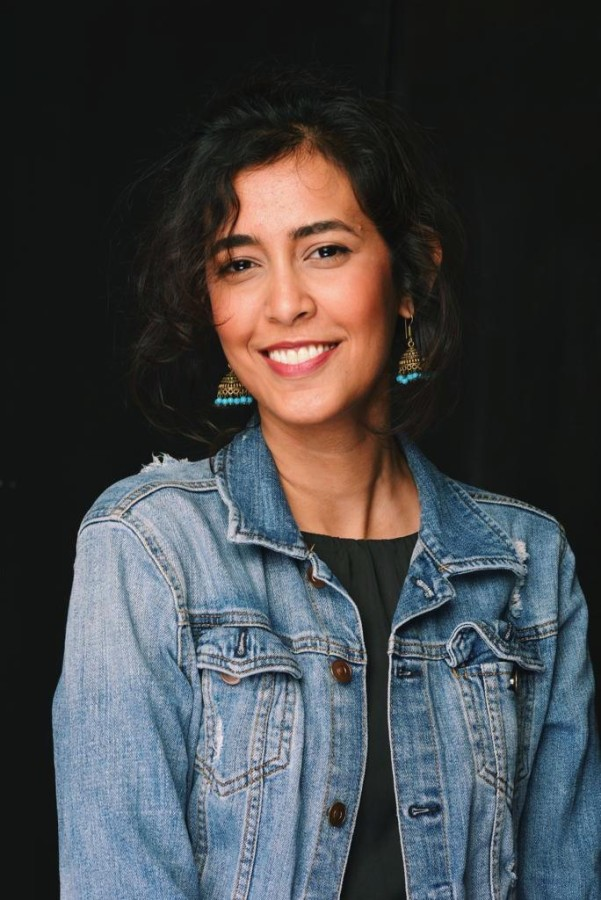Muna Saeed discusses the challenges of shifting between two cultures
As a mental health support worker, especially someone who comes from the Arab culture, processing what goes on inside my mind when supporting someone is very complex. I come from Yemen - a very traditional and conservative society that has been recently undergoing conflicts and wars. It isn’t an easy reality to deal with or talk about just now, however, it is my reality and I am still learning to accept it.
The day-to-day job of a mental health support worker is so varied and depends on the needs of the person they are supporting. One day you find yourself in someone’s home as they allow you to enter into their life and open up to you about some of the difficulties they face on a daily basis. Another day, you could be going with your service users to meetings as a professional but also as companion, or community bridge builder.
With constant encouragement and empathy, you try to help them build a sense of belonging and self-worth as you assist them draw their own support plan with goals and outcomes that they desire to achieve.
I know for a fact that when meeting a new service user, my personal experience has a huge impact on the person I am today and the way I do my job. Having studied in an American University in Lebanon for six years of my life, combining both eastern and western cultures, I feel like I am constantly swinging in between the two. Although I relate in many ways to the majority culture of my peers and the service users I would meet in Scotland, I am also shaped by some Middle Eastern cultural influences that make me different.
Where I come from, attitudes about mental health illness are still very stigmatised and little is known about patients struggling with mental health illnesses. It is a taboo subject for many. And without a doubt challenging for people struggling with it. Most people are afraid to talk about it or seek help. In fact, there aren’t many services that would offer support to people with mental health illnesses. Thus, for me, it is a constant thought to fight culturally influenced mental health attitudes that tend to be stigmatising or discriminating.
Frankly, what goes on inside my mind can be overwhelming at times and I am fully aware that my cultural identity is always somewhere in the back of my mind. However, it is a choice to learn ways and new perspective to unlearn these negative attitudes, educate myself on mental health topics, and attend as many trainings and workshops as possible. As a result, I keep reminding myself to be compassionate, empathetic, understanding, and non-judgmental in every interaction and every face-to-face meeting with the service users I support.

Ideally, I am sensitive to the ways each individual has been hurt. I always think about how the person wants to define and represent themselves and their stories more than the labels and definitions that have been given to them, be it by their mental health disorder, family, friends, society or culture.
However, to be honest with you, it isn’t easy to practice. In reality, it crosses my mind quite often the cultural differences of what I identify as a problem compared to what someone else from a completely different background identifies as a problem. For example; in Yemen, I grew up struggling to enjoy a luxury such as “water” or “electricity”. In fact, according to research, it is estimated that 17.8 million people lack access to safe water and adequate sanitation services in Yemen (OCHA). These are simple examples of basic needs that ordinary Yemeni people struggle with on a daily basis, let alone having to deal with the war and trauma affected by war.
On the other hand, there are plenty of cultural norms in the Scottish society- especially in Glasgow - which I know nothing about. Besides working with my services users and focusing on their mental health, I am usually open with them and enjoy learning so much about their own upbringing, their traditions, habits and rituals. Not only would I enjoy learning from my service users, I also love the chats I would have with my colleagues at work. Aye, if you have not wondered yet, it took me time to understand the Glaswegian accent, but I am getting there, alright?
As I process things in my mind, I keep reminding myself to take the time to understand where every service user I work with is coming from and completely recognize that their reality and the challenges, they face are different than mine or anyone else’s. In other words, what could sometimes seem minor to me, could be very huge to them and the other way around
As much as I believe it is a constant process of learning to find ways to practice humility and connect with the person on a human level, it is also a constant process of unlearning old ideas, cultural stereotypes and perceptions about mental health issues.
Muna Saeed is a mental health support worker based in Glasgow






